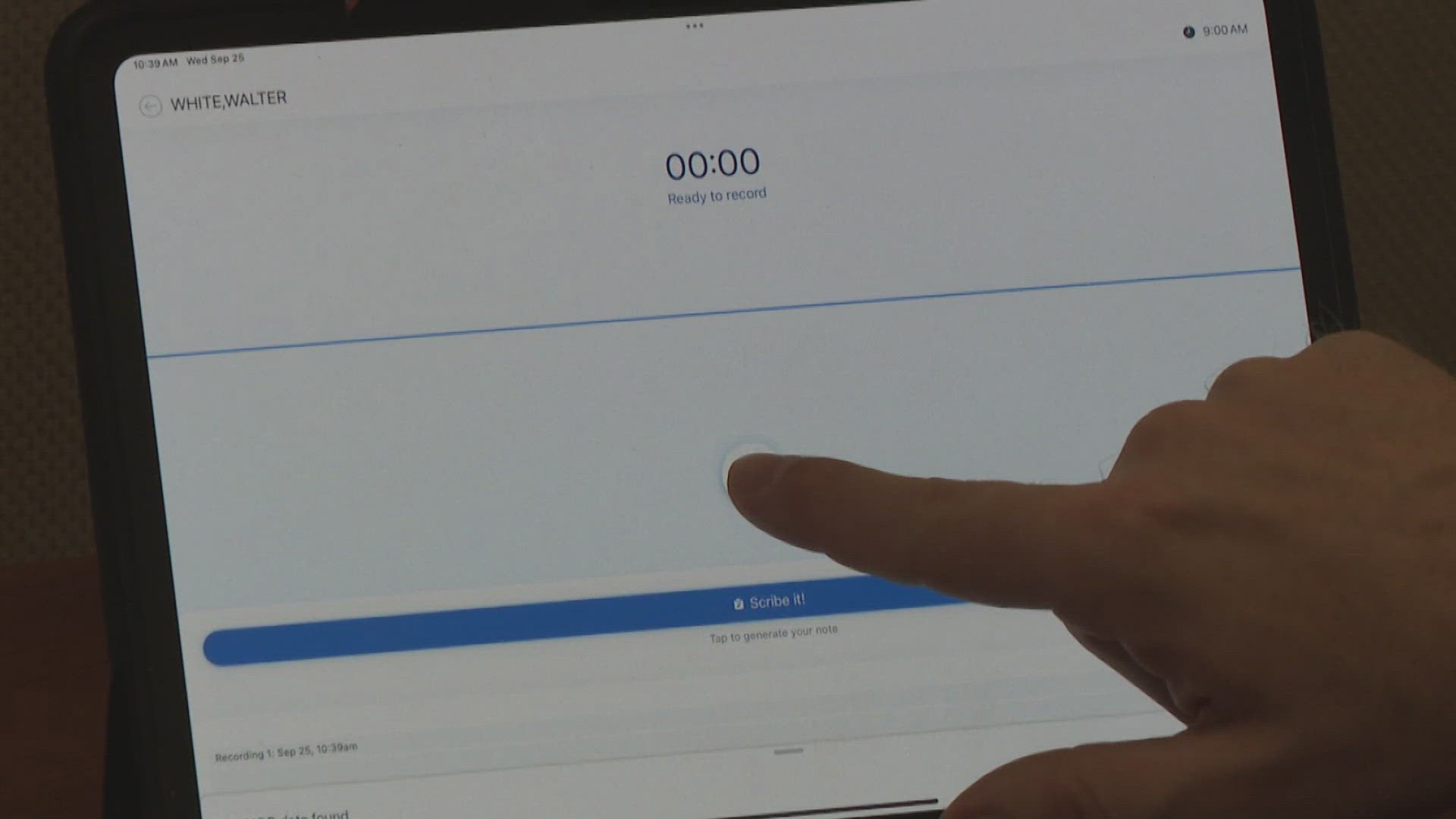NEW ORLEANS — Technology is mostly thought to interfere with people interacting on a personal level, but now one local hospital says the latest artificial intelligence can improve the doctor-patient relationship.
This comes at a time when doctors say they are spending more than half their time working on electronic medical records.
In the near future, there could be a third set of listening ears in the exam room with you and your doctor.
“They actually have an artificial intelligence, which is trained in the same way that the human was trained," explained Dr. Jason Hill, Innovation Officer for Ochsner Health. "As to like, hears, listen to the conversation, and then out of that conversation generate a medical note".
It's called ambient listening to help the doctor listen to you more and do less of this.
“And now the visit turned from like the doctor's talking to you, to like the doctor's over here on a computer, while you were talking, said Dr. Hill. "And that as a patient, 1: doesn't feel good, 2: it divides the doctor’s attention," he said.
So, we wanted a demonstration, and asked Dr. Hill to get one of his co-workers, Brenda, and asked her to pretend that she had a heart condition, and was coming in as his patient because we wanted to see just how ambient listening works.
The artificial intelligence writes out the conversation and then gives a summary back for the doctor to review for accuracy. A simplified version in everyday language can then be put in the patient's online portal called “My Chart.” Ochsner tried it out with some primary care patient visits earlier this year.
“The A.I. takes that burden, that cognitive burden, away from the physician, so they can just be in the interaction with the patient," Dr. Hill said. "And we have a ton of data that shows that actually enhances patient satisfaction.”
So, is it safe to have A.I. listening to your private conversation?
“Amazon's cloud database is probably the most secure, one of the most secure databases in the world,” he said.
Still, the doctor will have to ask the patient if using ambient listening is ok, and you as a patient, have the right to refuse.
“And we're OK with that,” said Dr. Hill. “The vast majority of patients, and we've done surveys around this with patients, feel like they're OK with that because it helps them get that connection with the doctor.”
Ochsner is implementing the system with primary care visits now and expects for it to be systemwide across the state by the end of 2025.
Use of the technology will not add any costs to your doctor visit.
► Get breaking news from your neighborhood delivered directly to you by downloading the new FREE WWL-TV News app now in the IOS App Store or Google Play.


